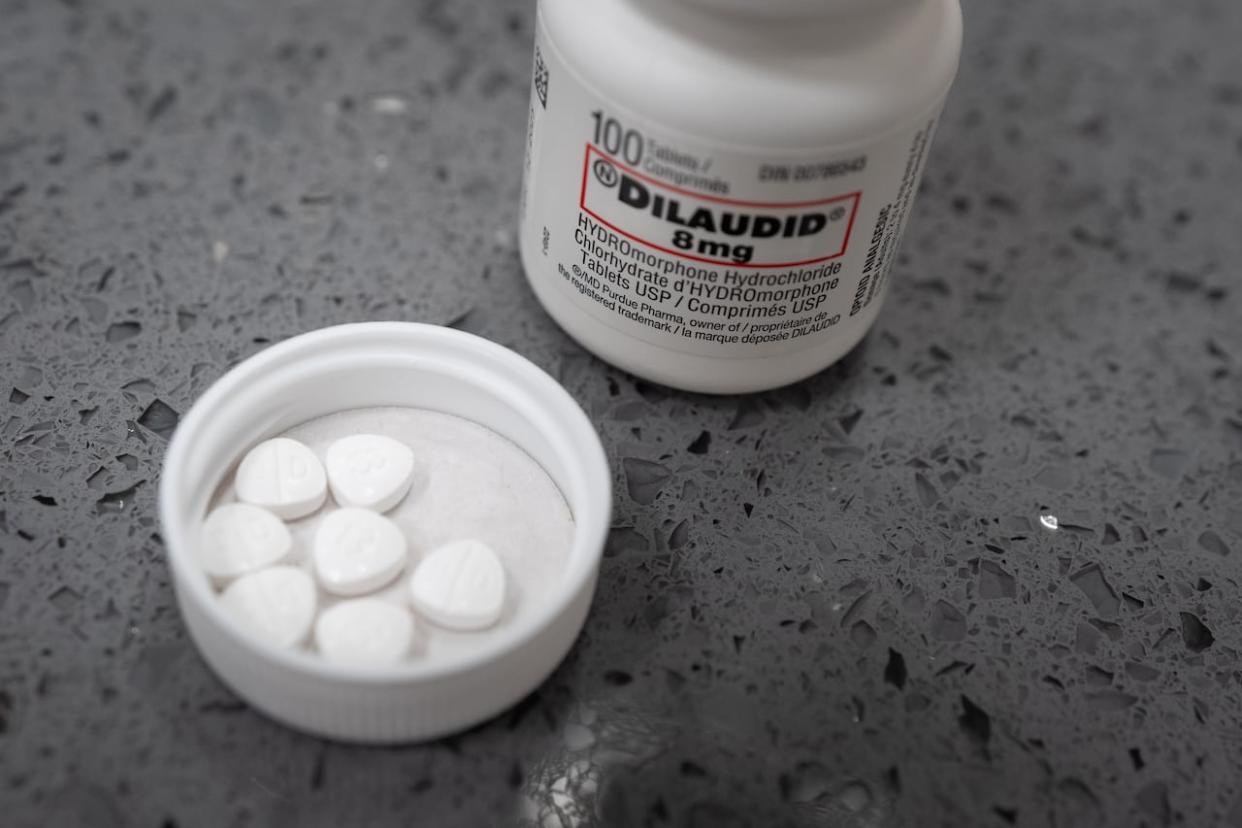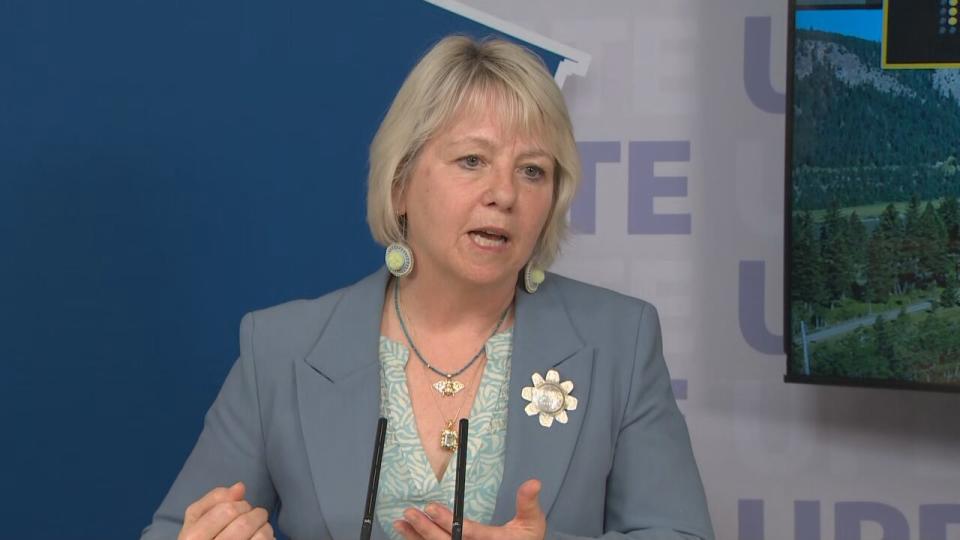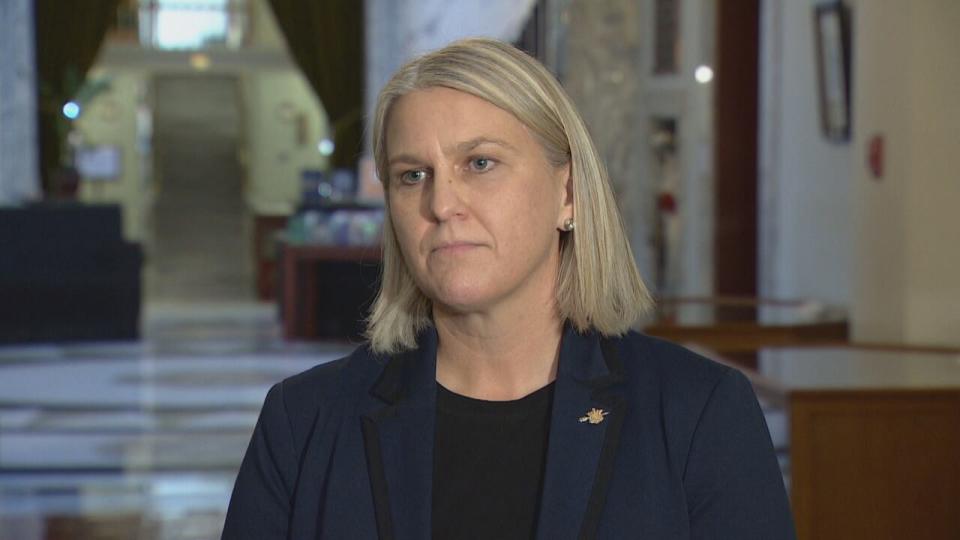B.C. should consider non-prescribed drug alternatives: top doctor

The B.C. NDP government has swiftly rejected a recommendation from the province's top doctor that B.C. expand its safer supply program and allow people to obtain opioids without a prescription, including at compassion clubs and even retail stores.
In her latest report on the overdose crisis, released Thursday, Provincial Health Officer Dr. Bonnie Henry called for an end to the prohibition on hard drugs, which she says has caused people to rely on unregulated, toxic drugs that are killing an average of seven people a day in B.C.
However, just over an hour after the report was published, Minister of Mental Health and Addictions Jennifer Whiteside rejected the recommendations.
Whiteside said in a statement that while the province respects Henry's advice, "the province will not go in the direction of compassion clubs and other non-medical models of distributing medications."

Dr. Bonnie Henry, the provincial health officer, released a report Thursday which called for the safer supply program to be expanded so people can access it without a prescription. (CBC)
In her report, Henry says a system to allow access to safer, regulated alternatives to fentanyl and other drugs is necessary because a significant number of people who died from the unregulated drug supply did not have substance-use disorders and cannot be protected by "medicalized approaches."
She said the province can look to the approach taken with cannabis, where people were initially able to access the drug through compassion clubs and now through government-run and private retail stores.
"We have to take evidence from other types of initiatives, for example, related to cannabis use in the past," Henry said during an online news conference Thursday.
Henry said the current safer supply program, which requires people to obtain a prescription for hydromorphone or other opioids that are dispensed at a pharmacy, has too many barriers and is not available to people in rural and remote communities.
"Are there ways that we don't have to link somebody to an individual prescriber? That's been one of the barriers," she said.
According to an earlier safe supply report, which Henry released in February, 4,331 people were given prescribed opioid alternatives, which is less than four per cent of the estimated 150,000 people with a substance use disorder.
The latest report says 225,000 or more people in B.C. are accessing unregulated drugs and fentanyl continues to be the main killer, with 83 per cent of illicit drug deaths linked to the opioid.
'Compassion club' model
Elenore Sturko, a B.C. Conservative MLA who has long been critical of the province's safe supply program, said Henry's recommendations are dangerous. Sturko called for her to be fired.

B.C. Conservative MLA Elenore Sturko said her party rejects the idea of non-medical access to safer supply. (Michael McArthur/CBC)
"This was my suspicion all along, that we would see another report from Dr. Henry that's pushing for the legalization of hard drugs in British Columbia," Sturko, a former RCMP officer, told CBC News.
"One of the scenarios that they're proposing is that illicit drugs find their way onto store shelves [and] be accessible to people through retail; not medically managed, not a requirement for individuals to have any interaction with the health care system to obtain these drugs, which I think is not only irresponsible but, frankly, I think it's dangerous."
Henry's report says community-based "compassion clubs," such as the one operated by the Drug User Liberation Front (DULF), could be potential models for safer-supply access without prescriptions.
She made clear that her report "is not an endorsement of DULF," but she said it's one of the few opioid programs on which there's some academic research.
DULF co-founders Jeremy Kalicum and Eris Nyx were arrested last October, closing the "compassion club" service after about a year in operation.
They were charged in June with three counts each of possession for the purpose of trafficking.
Premier David Eby said at the time that DULF was providing "life-saving work" but was also breaking the law, which could not be tolerated.
Vancouver police said at the time of their arrest that while it acknowledged DULF had been operating in an attempt to reduce "impacts of the toxic drug supply," the authorities have to uphold and enforce existing laws.
Diversion concerns
B.C.'s current prescribed safer-supply policy has been intensely debated within the province and beyond, with federal Conservative Leader Pierre Poilievre and Alberta Premier Danielle Smith both claiming that drugs from the program were being diverted into the rest of Canada.
Solicitor General Mike Farnworth has said there's no evidence of widespread diversion of safe-supply drugs, and Henry says in the latest report that "anecdotes may not reflect the experience of most people who are prescribed alternatives to unregulated drugs."
Henry's report echoes the findings from former chief coroner Lisa Lapointe, who said in January before leaving her post that prescribed safer-supply drugs would not solve the crisis, which has claimed more than 14,000 lives in B.C. since 2016.
At the time, Eby rejected Lapointe's pleas, saying he did not believe distribution of opioid drugs should happen without the supervision of medical professionals.
Henry seemed to anticipate that the government would not back her position, but told reporters: "My role is to provide my best advice on health issues ... regardless of who is in political power."
"Ultimately, we cannot prescribe our way out of this crisis," Henry says in the report.
"Finding new ways to enable access to alternatives to unregulated drugs will require bold conversations, system-level changes, and thinking outside of the constraints that have so far failed to turn this crisis around."

 Yahoo News
Yahoo News 
